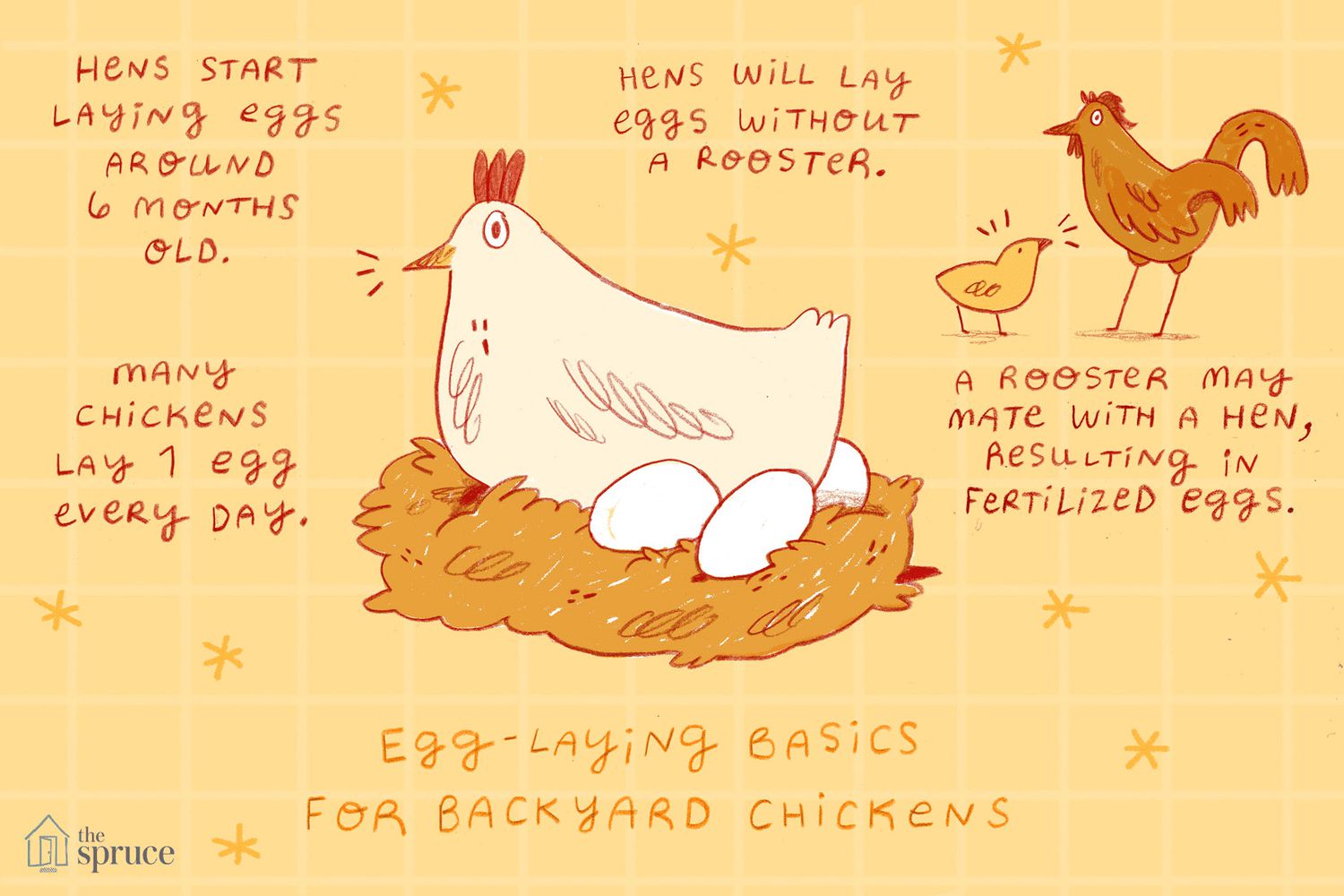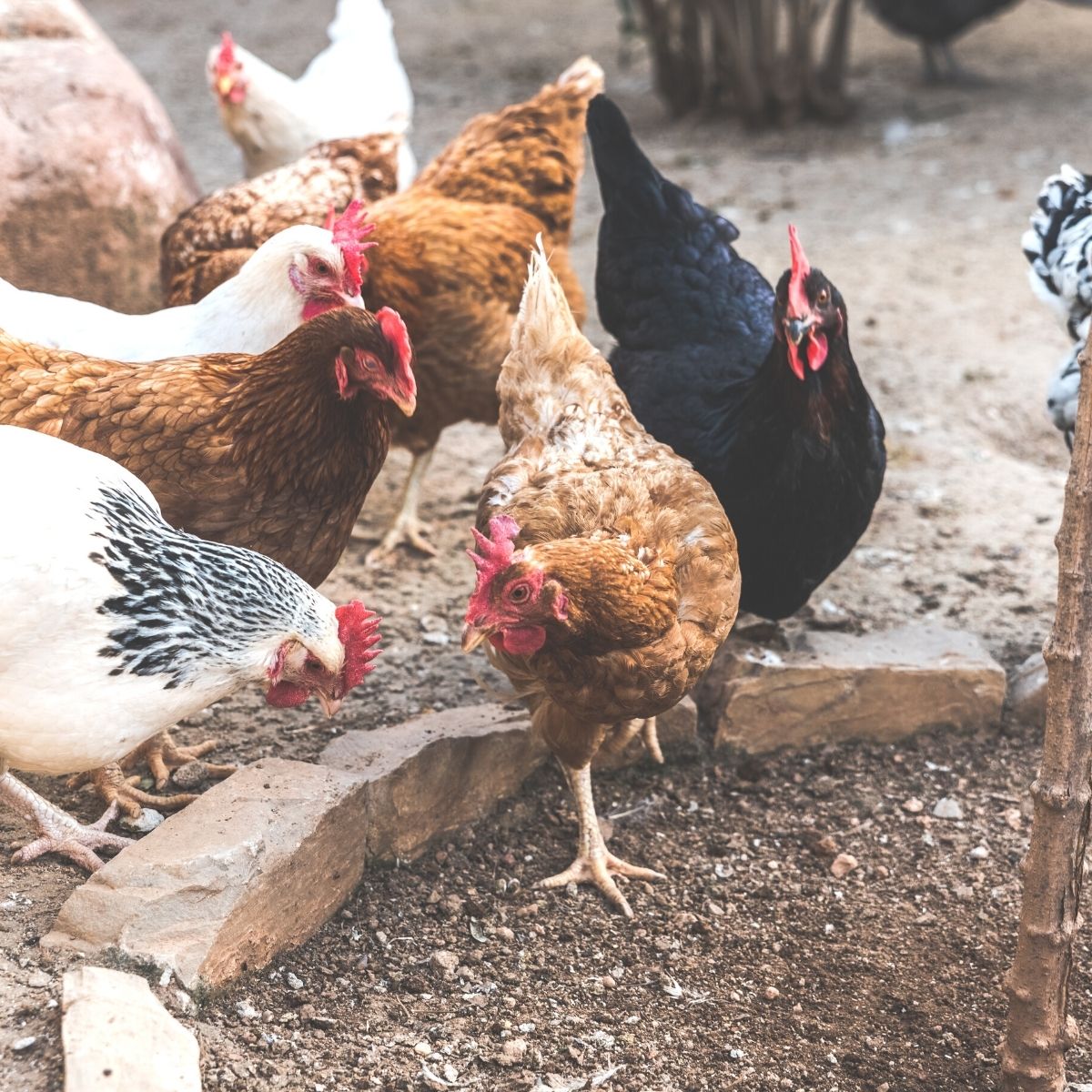Can chickens lay eggs twice a day? Yes, it is possible for chickens to lay eggs twice a day, but the circumstances have to be just right. If you are thinking about getting into chicken husbandry and want to know the benefits of it, then read on to find out more about this fascinating and rewarding hobby.
What is Chicken Husbandry?

Chicken husbandry is the practice of raising chickens for their eggs, meat, or feathers. It involves taking care of the birds’ needs, providing them with food, water, shelter, and a safe environment. It also requires knowledge of poultry genetics and nutrition, as well as biosecurity measures to prevent the spread of diseases.
Chicken husbandry is an ancient practice, and has been used for centuries to provide sustenance to communities. The benefits of chicken husbandry are numerous, including a reliable source of eggs, meat, and feathers for a variety of uses. In addition, the practice helps to reduce food waste, as the chickens’ eggs can be used for cooking, baking, and even for fertilizing gardens.
One of the most common questions asked about chicken husbandry is whether hens can lay more than one egg a day. While hens can lay up to two eggs a day, this is not a common occurrence due to the stress and nutritional demands on their bodies. In addition, some hens may only lay one egg a day, or even none at all.
| Benefits of Chicken Husbandry |
|---|
| Provides a reliable source of eggs, meat, and feathers |
| Reduces food waste |
| Can provide up to two eggs a day |
| Requires knowledge of poultry genetics and nutrition |
| Requires biosecurity measures to prevent the spread of diseases |
The practice of chicken husbandry can be a rewarding experience for those who are willing to learn and dedicate time to their birds. While the chickens may not lay eggs twice a day, the benefits of chicken husbandry are numerous and can provide a steady supply of eggs, meat, and feathers for many years to come.
Benefits of Chicken Husbandry

Fresh Eggs
Raising chickens can provide a steady supply of fresh eggs. Depending on the breed, chickens can lay eggs as often as twice a day. This can provide a large amount of high-quality protein to help keep you and your family healthy.
Healthy Meat
Raising chickens can also provide a source of healthy meat to feed your family. Chickens are a leaner source of protein than other types of meat. When raised properly, chickens can provide a safe and nutritious source of meat that can be used in a variety of dishes.
Natural Fertilizer
Chickens can provide an environmentally friendly solution for fertilizing your garden. Chicken manure is an excellent source of natural fertilizer, and it can help keep your garden healthy and productive.
Insect Control
In addition to providing fresh eggs and meat, chickens can also help control insect populations. Chickens are omnivorous and will eat a variety of insects, including beetles and caterpillars. This can help keep your garden and yard free of pests.
Raising chickens can provide many benefits, including a steady supply of fresh eggs, healthy meat, natural fertilizer, and insect control. With proper care, chickens can lay eggs twice a day, making them a valuable addition to any homestead.
Can Chickens Lay More Than One Egg a Day?

Chickens are capable of laying more than one egg a day, but it is unlikely that they will do so on a regular basis. The number of eggs a chicken can lay in one day is largely determined by genetics, hormones, and external factors.
The Anatomy of a Chicken Egg
A chicken egg has several components, including a shell, albumen, yolk, and air cell. The shell is the outer layer of the egg and serves as a protective barrier. The albumen is a protein-rich fluid that acts as a cushion for the egg’s contents. The yolk contains most of the egg’s fat and cholesterol and is the source of nutrients for the developing embryo. The air cell is a space at the large end of the egg that is filled with air.
The Role of Hormones
A hormone called estrogen is responsible for regulating the production of eggs. Estrogen is released by the chicken’s pituitary gland, which is located in the brain. When the pituitary gland detects an adequate level of estrogen in the bloodstream, it triggers the release of an egg. The process of producing an egg takes about 24 hours, so it is unlikely that a chicken will be able to lay more than one egg a day.
External Factors
In addition to hormones, there are several external factors that can affect a chicken’s ability to lay more than one egg a day. These include the environmental temperature, the amount of light, the amount of food and water available, and the amount of stress the chicken is under. If any of these factors are not ideal, the chicken’s body may not be able to produce an egg every 24 hours.
Although it is possible for a chicken to lay more than one egg a day, it is unlikely to happen on a regular basis. If you are looking to maximize your egg production, it is important to provide your chickens with the right environment, food, and water to ensure they are producing eggs at their optimal rate.
Can Hens Lay More Than One Egg a Day?
Hens can lay more than one egg a day, but their egg production varies depending on the breed, age, and health of the bird. While some breeds of chickens can lay two eggs a day, it is not a common occurrence. In some cases, the egg-laying cycle may be disrupted, resulting in a hen laying two eggs in one day.
Egg Production Cycles
Chickens lay eggs in cycles, with each cycle lasting around 21 days. During this cycle, the hen will typically lay one egg per day, though this can differ from bird to bird. A hen’s egg-laying cycle can be affected by many factors, including age, breed, health, and environmental conditions.
Breeds of Chickens That Lay Twice a Day
Some breeds of chicken are more likely to lay two eggs a day than others. These include the Leghorn, Ancona, and Rhode Island Red. These breeds are known for their high egg production and can often lay two eggs in a single day.
Improving Egg Production
If you want your chickens to lay more eggs, there are a few things you can do to encourage them. Make sure they have plenty of access to food and water and provide them with a comfortable and safe environment. You can also provide them with supplemental lighting to help stimulate egg production. Finally, make sure to keep their eggs clean and collect them from the nesting box regularly.
Overall, while it is possible for a chicken to lay two eggs in one day, it is not a common occurrence and largely depends on the breed, age, and health of the bird. To increase your chickens’ egg production, make sure to provide them with plenty of food, water, and a comfortable environment.
Frequently Asked Questions
What are the Benefits of Chickens Laying Eggs Twice a Day?
Double egg-laying chickens offer many advantages for poultry farmers. The higher egg production can lead to higher profits and more efficient use of resources. Chickens laying eggs twice a day are also less prone to disease and have a longer productive life. Furthermore, eggs produced in the morning are fresher and of higher quality than eggs laid in the afternoon. Finally, farmers benefit from the cost savings associated with having fewer chickens.
What kind of husbandry is required to ensure that chickens lay eggs twice a day?
- Provide a safe and comfortable environment: Chickens need to be kept in a clean, secure, and well-ventilated environment. This means keeping the chickens away from predators and providing them with plenty of fresh air.
- Feed them a balanced diet: Chickens need a balanced diet to keep them healthy and lay eggs regularly. Provide a combination of grains, greens, fruits, and proteins.
- Maintain good hygiene: Clean the coop and nesting boxes regularly to prevent the spread of diseases. Also, keep the food and water containers clean and sanitized.
- Provide sufficient light: Chickens need at least 16 hours of light each day to lay eggs. Install a timer to ensure the lights come on and off at the same time each day.
- Allow enough space: Chickens need enough space to move around, otherwise, they will become stressed and stop laying eggs. Provide at least 1 square meter of space per chicken.
- Monitor for health problems: Check on your chickens regularly to ensure they are healthy and look out for any signs of illness. If you notice any unusual behavior, take them to a vet for a check-up.
By following these husbandry practices, you can ensure that your chickens lay eggs twice a day.
Is there an optimal time of day for chickens to lay their eggs?
Yes! Chickens typically lay eggs during the morning hours, making 10am the optimal time. However, egg production is a very individual process and may vary depending on the breed, age, and health of the hen, as well as external factors such as their environment and the amount of daylight they receive.
- Light: Chickens require at least 14 hours of daylight to lay eggs. During the winter months, when days are shorter, egg production may be reduced.
- Age: Young hens tend to lay more eggs than older hens. Therefore, the optimal time of day for egg production may vary based on the age of the hen.
- Breed: Some breeds are more likely to lay eggs in the morning, while others may lay eggs in the afternoon or evening.
- Environment: Stressful environments, such as overcrowded coops, may cause chickens to lay eggs at different times of the day.
- Health: Poor nutrition or illness can lead to decreased egg production or eggs being laid at different times.
To maximize egg production, it’s important to provide your chickens with a safe, healthy environment and adequate daylight. If your hens aren’t laying eggs at the expected time of day, consider adjusting their environment or checking for signs of stress or illness.
How can I tell if my chickens are capable of laying eggs twice a day?
Age: The age of your chicken is the most important factor to consider. Generally, hens start to lay eggs when they reach 16-20 weeks of age. If your chickens are younger than this, they may not be capable of laying eggs twice a day.
Breed: The breed of your chickens is also important. Some breeds are more prolific egg layers than others. For example, breeds like the Rhode Island Red, Leghorn, and Australorp are known to lay more eggs than other breeds.
Nutrition: Providing your chickens with a balanced diet is essential for them to produce eggs. A diet that is high in protein, calcium, and other nutrients will ensure that your chickens are healthy and able to lay eggs twice a day.
Environment: Your chickens will need to have a comfortable environment in order to lay eggs. Make sure they have adequate space, good ventilation, and plenty of clean water.
Lighting: Providing your chickens with 14-16 hours of natural light each day can help them to lay eggs twice a day. Artificial light can also be used, as long as it is consistent.
Egg Production: Once your chickens are of the appropriate age, breed, and are well-fed and housed, you should be able to tell if they are capable of laying eggs twice a day. Inspect their nests for eggs every day and keep track of the number of eggs they are laying. If the egg production is consistent, then your chickens may be capable of laying eggs twice a day.
What kind of food and care do chickens require to lay eggs twice a day?
- Healthy Diet: Chickens need a balanced diet for optimal egg production. This includes providing them with high-quality feed, fresh water, and calcium supplements.
- Comfortable Living Conditions: Chickens should have plenty of space to move around and access to fresh air and sunlight. Make sure the coop is secure and predator-proof, and the temperature is comfortable.
- Protection from Predators: Chickens should always be kept in a coop or secure enclosure to protect them from predators.
- Proper Care: Chickens need regular vaccinations and health checkups to ensure they are in optimal condition for laying eggs.
- Dedicated Caretaker: Chickens should be monitored and cared for by an experienced caretaker to ensure they are getting the best possible care.
Conclusion
Chicken husbandry is a great way to have a steady supply of fresh eggs and provides a number of other benefits as well. While it is possible to have chickens that lay eggs twice a day, it may not be practical for everyone depending on their climate and available resources. Regardless, chicken husbandry is a great way to have fresh eggs and to provide additional benefits to your home and family.
